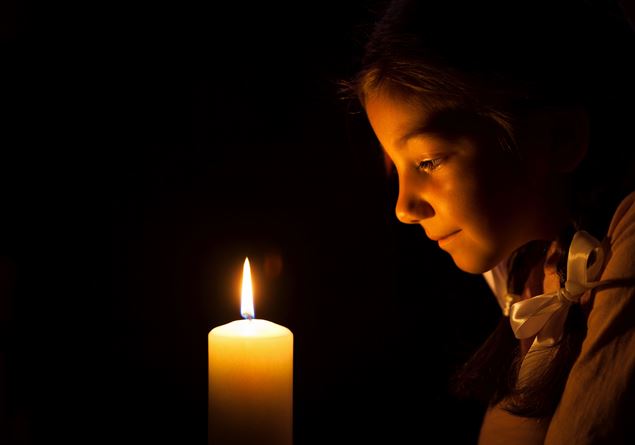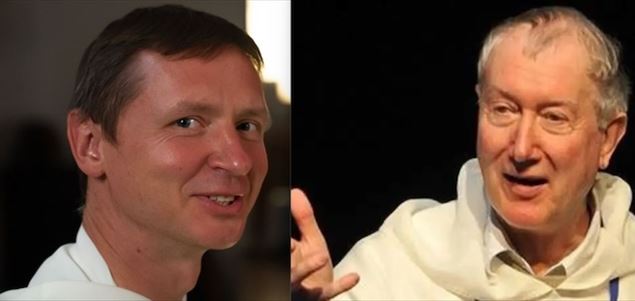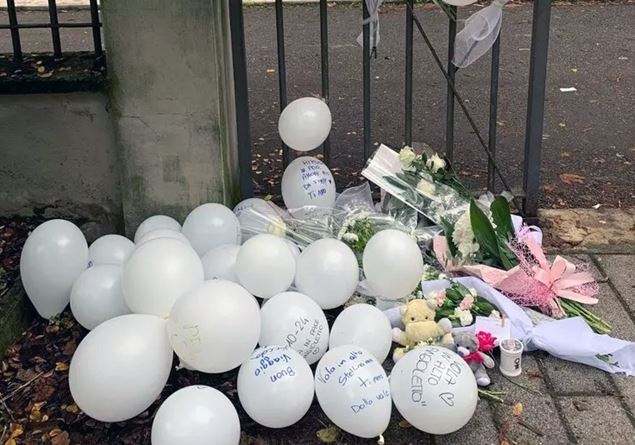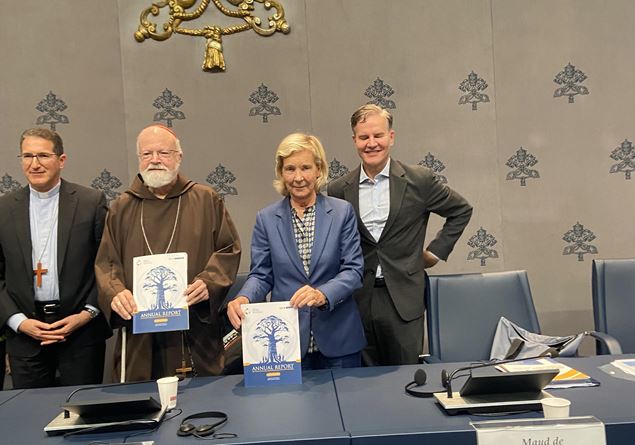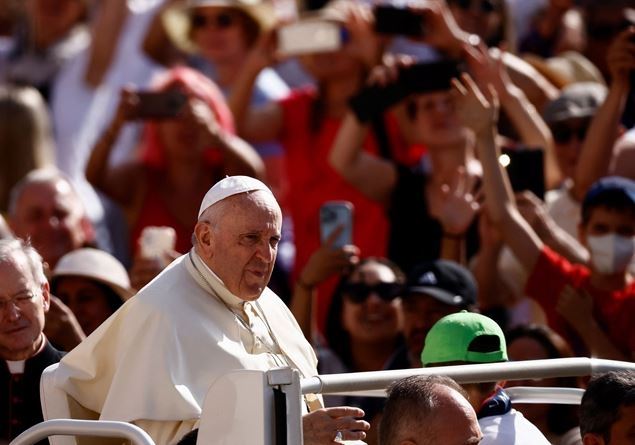
In the spectacle of faithful that fills St. Peter’s Square – as always, even with the rain in the Wednesday General Audiences – the Pontiff continues his reflection on the presence and action of the Holy Spirit in life through the sacraments. Today in particular it focuses on the sacrament of confirmation or confirmation.
For several Wednesdays the Pope has resumed the cycle of catecheses dedicated to the Holy Spirit who ensures universality and unity to the Church. Last Wednesday he spoke about the way in which the Holy Spirit illuminates the sacrament of marriage, reviving the ability to give of oneself, a new joy of being together, inspiring the couple to live as one, he said. So what, things that children really, really need.
«The Holy Spirit», he said, «continues to perform the miracle of the wedding at Cana for many spouses who do not have wine in their marriage, changing the water of habit into a new joy of being together. This was when the spouses decided to invoke him and the spirit was able to place the finger of God between wife and husband, modifying the well-known Italian proverb. His reflection, the reflection of Pope Francis began with the doctrine of the Holy Spirit of Saint Augustine. The father is, in the Trinity, the one who loves. The source is the beginning of everything. The son is the one who is loved, and the Holy Spirit is the love that unites them.” This is what Pope Francis said last week in his catechesis.
The General Audience on Wednesday 30 October 2024
This morning’s General Audience takes place at 9.00 in St. Peter’s Square, where the Holy Father Francis meets groups of pilgrims and faithful from Italy and all over the world. In the speech in Italian the Pope, taking up the cycle of catechesis “The Spirit and the Bride. The Holy Spirit guides the people of God to meet Jesus, our hope”, focuses his meditation on the theme: “He has given us the anointing and has placed his seal on us”. Confirmation, sacrament of the Holy Spirit (Reading: Acts 8,14-17).
Catechesis of the Holy Father
Dear brothers and sisters, good morning!
Today we continue the reflection on the presence and action of the Holy Spirit in the life of the Church through the Sacraments. The sanctifying action of the Holy Spirit reaches us first of all through two channels: the Word of God and the Sacraments. And among all the Sacraments, there is one which is, par excellence, the Sacrament of the Holy Spirit, and it is on it that I would like to focus today. This is, as you have understood, Confirmation or Confirmation.
In the New Testament, in addition to baptism with water, another rite is mentioned, that of the laying on of hands, which has the aim of communicating the Holy Spirit visibly and charismatically, with effects similar to those produced on the Apostles at Pentecost. . The Acts of the Apostles reports a significant episode in this regard. Having learned that some in Samaria had received the word of God, they sent Peter and John from Jerusalem there. «They came down – says the text – and prayed for them so that they would receive the Holy Spirit; for he had not yet descended upon any of them, but they had only been baptized in the name of the Lord Jesus. Then they laid their hands on them, and they received the Holy Spirit” (8:14-17).
Added to this is what Saint Paul writes in the Second Letter to the Corinthians: «It is God himself who confirms us, together with you, in Christ and has given us the anointing, has put the seal on us and has given us the guarantee of the Spirit in our hearts” (1.21-22). The theme of the Holy Spirit as the “royal seal” with which Christ marks his sheep is the basis of the doctrine of the “indelible character” conferred by this rite.
With the passage of time, the rite of anointing took the form of a Sacrament in its own right, taking on different forms and contents in the various eras and in the different rites of the Church. This is not the place to retrace this very complex history. What the Sacrament of Confirmation is in the understanding of the Church seems to me to be described, simply and clearly, by the Adult Catechism of the Italian Episcopal Conference. It says thus: «Confirmation is for every believer what Pentecost was for the whole Church. (…) It strengthens the baptismal incorporation into Christ and the Church and the consecration to the prophetic, royal and priestly mission. Communicate the abundance of the gifts of the Spirit (…). Therefore, if baptism is the sacrament of birth, confirmation is the sacrament of growth. For this very reason it is also the sacrament of testimony, because this is closely linked to the maturity of Christian existence.”
The problem is how to ensure that the Sacrament of Confirmation is not reduced, in practice, to an “extreme unction”, that is, the sacrament of “departure” from the Church, but is the sacrament of the beginning of active participation in its life. It is a goal that may seem impossible to us given the current situation throughout the Church, but this does not mean we must stop pursuing it. It will not be like this for all the confirmands, children or adults, but it is important that it is so for at least some who will then be the leaders of the community.
For this purpose, it can be helpful to get help in preparing for the Sacrament from lay faithful who have had a personal encounter with Christ and have had a true experience of the Spirit. Some people say they experienced it as a blossoming in them of the Sacrament of Confirmation they received as kids. But this does not only concern future confirmation candidates; it affects all of us at all times. Together with the confirmation and the anointing, we have received, the Apostle assured us, also the earnest of the Spirit which elsewhere he calls “the firstfruits of the Spirit” (Rom 8:23). We must “spend” this deposit, enjoy these first fruits, not bury the charisms and talents received under the ground.
Saint Paul exhorted his disciple Timothy to “rekindle the gift of God, received through the laying on of hands” (2 Tim 1.6), and the verb used suggests the image of someone who blows on the fire to rekindle its flame. Here’s a nice milestone for the Jubilee year! Remove the ashes of habit and disengagement, become, like the torchbearers at the Olympics, bearers of the flame of the Spirit. May the Spirit help us take a few steps in this direction!
I extend a cordial welcome to the pilgrims. In particular, I greet the parish of San Leone di Saraceno and the Caritas of Teramo-Atri with the Bishop Monsignor Leuzzi, urging them to continue on the path of evangelical testimony. I then greet the Italian Women Jurists Association and the Faita-Federcamping Federation: I encourage everyone in their respective daily commitments to serving the community.
Finally, my thoughts go to the young people, the sick, the elderly and the newlyweds. We are
now close to the solemnity of All Saints: I invite you to experience this anniversary of the liturgical year,
in which the Church wants to remind us of an essential aspect of its reality: the celestial glory of the
brothers who preceded us on the journey of this present life and who now, in the vision of the Father,
they want to be in communion with us to help us reach the goal that awaits us.
We pray for peace. The war grows. Let’s think about the countries that suffer so much. The tormented Ukraine, Palestine, Israel, Myanmar, North Kivu and the many countries that are at war. We pray for peace.
Peace is a gift of the spirit and war is always, always, always a defeat. In war no one wins, everyone loses. Let us pray for peace, brothers and sisters.
Yesterday I saw that 150 innocent people were killed (in the north of the Gaza Strip. Among them 14 children were killed ed.). What do children have to do with war? And the families? They are the first victims. We pray for peace.
And my blessing to all!



